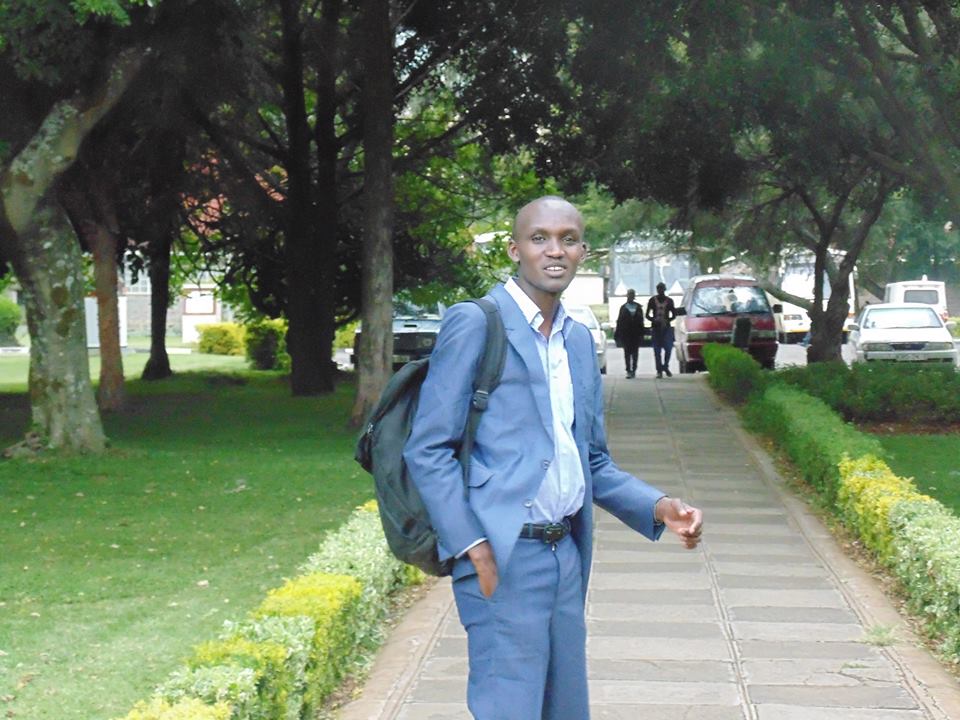Every day on my daily commute, and as a measure to escape the chocking Nairobi traffic, my matatu (bus) passes through an industrial district, well a different kind of industrial district. It is an industrial district without gargantuan factories with their chimneys rising into the heavens; it is an industrial district teeming with small and medium scale industries, widely known as ‘Jua Kali’ Swahili for industries under the hot sun.
More often than not, the matatus’ efforts at escaping traffic is an exercise in futility and we get to spend more time in traffic, much more time than would have been if we used the main highway. Thanks to that I get to see and appreciate what this men and women do to earn a living. From my bus window I see a man and his colleague slice sheet of metal with a hand held lever, I see another man hammer up a square of metal into a water bowl. I can see a woman add a spray of blue paint onto a metal box, I see a man hiss and navigate his way through traffic and humanity, his shoulder heavily laden with a new ‘jua kali’ oven. There are noises and smells, everywhere, metal knocking up on metal, the sound of a lathe machine, the sound of men load up newly mad wheelbarrows on to lorries, sounds of traders and buyers and sellers haggle over prices of one or two items, the smell of perspiration, smells of motor oils, smells of metal fillings.
Sadly the smell of open sewers emptying into open roadside terraces are part of the smells here as well, the roads are clogging up with dirt, the last time this road particular road saw a fresh layer of tarmac was way before the coup. In another posher place of town, inhabited by banks, insurance firms, consultancies and NGOs, a new stretch of road is having its tarmac painted and road side installed.
The double standards from the Kenyan society is appalling, conservative estimates in Kenya show that ‘’the informal sector is quite large, estimated at 34.3% of the economy and accounting for 77% of employment statistics. Over 60% of those working in the informal sector are the youth, aged between 18-35 years, 50% being women. Yet policy makers have never woken up to these facts and realized that the ‘Jua Kali’ economy and other associated cottage industries are the main stay of the Kenya economy.
I do not understand where the term ‘informal economy’ came from and when exactly it came to connote Kenya’s ‘Jua Kali’ economy but it certainly does not give justice to a sector that supports the bulk of the Kenyan population. Currently, it is estimated that the contribution to the GDP by the Jua Kali sector stands at over 25%.
Part of the reason why the Jua Kali sector is underserved by critical public goods like transport infrastructure is that the ‘jua kali’ sector escapes the dragnet of Kenya’s tax authorities, and that to a point is a pointer in to why the ‘Jua Kali’ industry flourishes. The underservice the sector receives from the government making operating costs in the industry high. Poor roads in this Jua Kali industry parks mean that fires can gut down entire Jua kali estates in minutes because fire trucks cannot navigate through the unplanned mesh of Jua Kali sheds.
Yet the ‘Jua kali economy has the potential to expand tax base, which then can lead to reduction in exorbitant corporation taxation rates that stand at 30%. A study by Parliamentary Budget Office (2010), shows that the potential GDP of the informal economy has been increasing over time. Between 2002 and 2008, the potential GDP of the hidden economy increased steadily every year from 7.58% in 2002 to 16.61% in 2008; with corresponding increase in tax potential as a percentage of GDP up from 2.52% in 2002 to7.66% in 2008.
There’s is nothing informal about the Jua Kali economy, it is as critical to national development and to the national economy as the mainstream economy. The Jua Kali economy needs support through policy and infrastructure.
That said and done, it saddens my heart each time I see a man toil and moil all day to, get taxed at the supermarket only to support the sleaze and vulgarity characterizes most public administrations in Africa.

